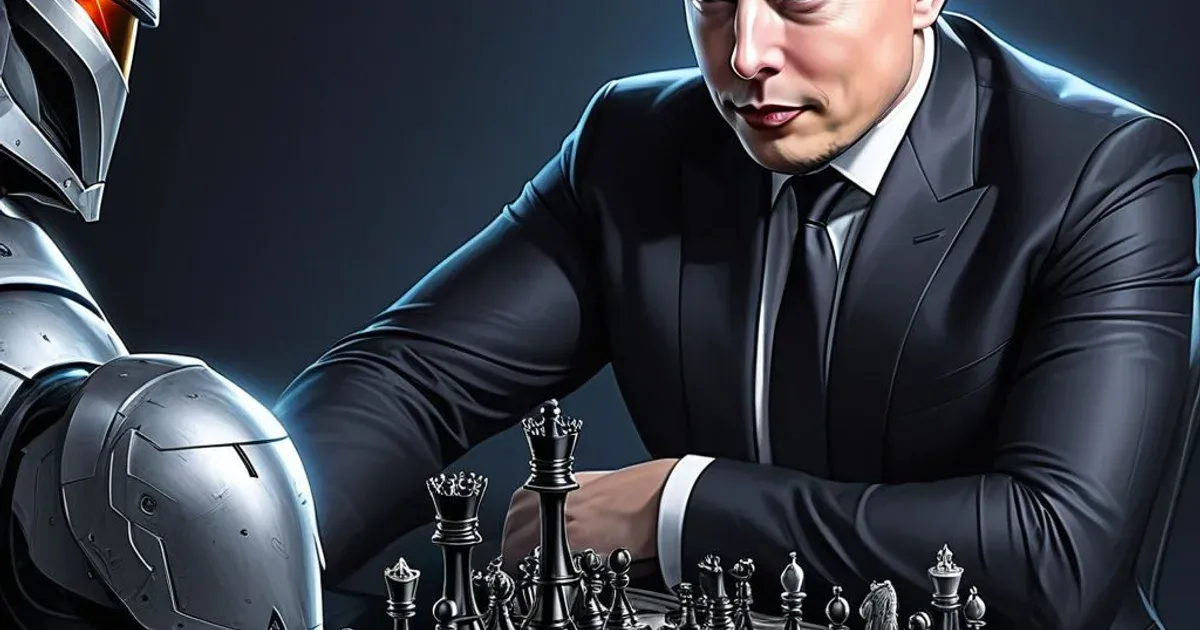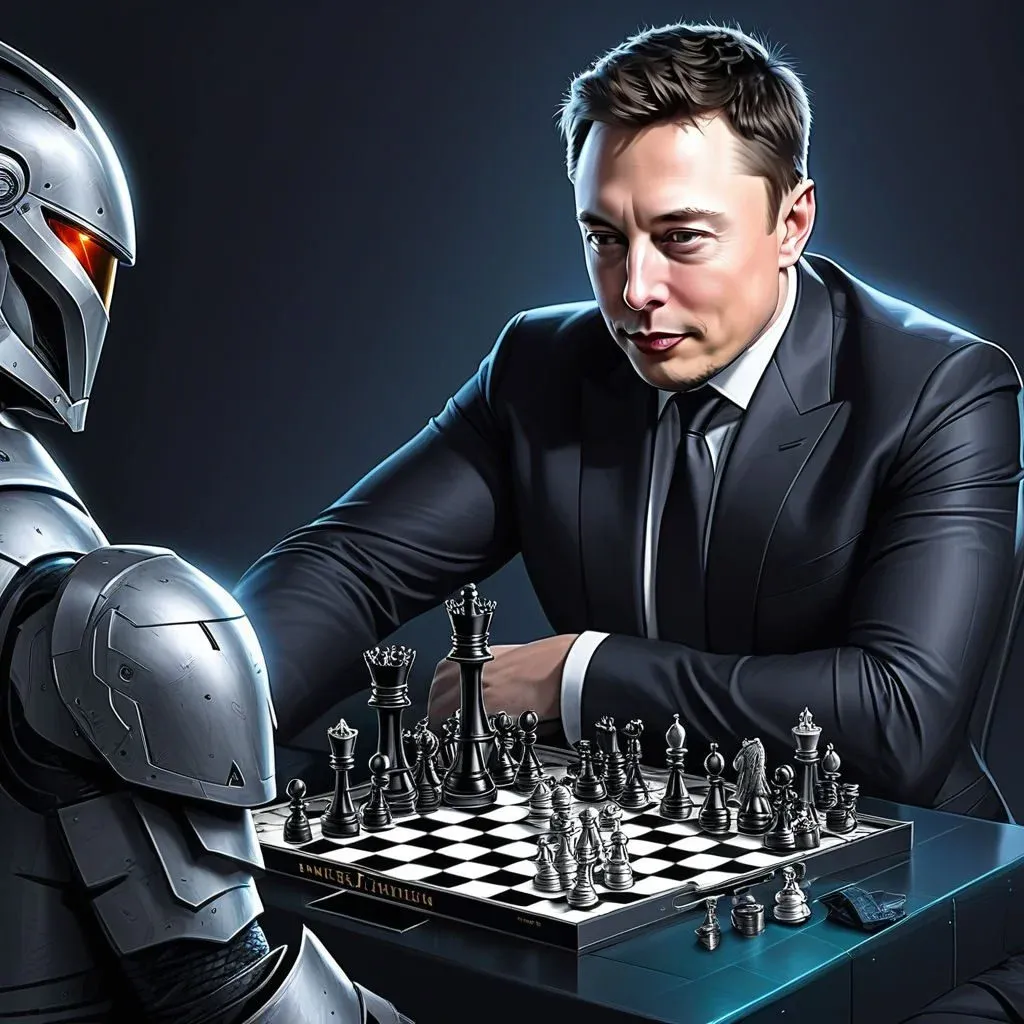
The question of whether chess can be fully solved has fascinated players, mathematicians, and computer scientists for decades. With artificial intelligence advancing at an extraordinary pace and chess engines already playing at superhuman strength, the idea of a complete solution to chess, where every position has a known optimal move, feels closer than ever. But is it actually possible? And what does it mean for the millions of people who play and love the game?
In this article we will explore what it means to solve chess, examine the staggering mathematical complexity that makes it so difficult, review what leading AI systems and experts have to say, and discuss how chess bots are already transforming the way we train and improve, regardless of whether chess is ever fully solved.
What Does It Mean to Solve Chess?
A game is considered "solved" when the outcome (win, draw, or loss) can be determined from any legal position, assuming both players make the best possible moves. There are three levels of solving a game:
- Ultra-weak solution: Proving the theoretical outcome of the initial position (for example, proving that chess is a draw with perfect play from both sides) without necessarily knowing all the moves.
- Weak solution: Providing a strategy that achieves the optimal outcome from the starting position against any opponent.
- Strong solution: Knowing the optimal move in every reachable position in the game.
Simpler games like tic-tac-toe and Connect Four have been strongly solved. Checkers was weakly solved in 2007 by Jonathan Schaeffer's Chinook program after 18 years of computation. Chess, however, remains unsolved at every level.
The Staggering Complexity of Chess
The Shannon Number
The complexity of chess is often expressed through the Shannon number, named after mathematician Claude Shannon, who estimated that chess has approximately 10^43 possible legal positions and roughly 10^120 possible game sequences. To put that in perspective, the number of atoms in the observable universe is estimated at around 10^80. The number of possible chess games dwarfs the number of atoms in the universe by a factor that is itself astronomically large.
Why Brute Force Cannot Work
Even with the most powerful supercomputers imaginable, brute-force calculation of every possible chess position is not feasible. If every atom in the universe were a computer evaluating a billion positions per second, and they had been running since the Big Bang, they would still not have come close to evaluating all possible chess positions. The combinatorial explosion is simply too vast.
Endgame Tablebases: Partial Solutions
Despite the impossibility of solving the full game, computer scientists have achieved partial solutions through endgame tablebases. These databases contain the perfect evaluation of every position with a small number of pieces remaining. As of now, all positions with seven or fewer pieces (including kings) have been solved. These tablebases are useful tools for both engines and human players, but they represent only a tiny fraction of all possible chess positions.
Can Chess Be Solved? Insights from Experts and AI
What Leading AI Systems Say
We asked three leading AI language models for their perspectives on whether chess can be fully solved:
ChatGPT's analysis: Chess is not fully solved and may never be due to its vast complexity. With billions of possible positions and move sequences, it is computationally infeasible to determine every potential outcome. Chess engines like Stockfish and AlphaZero play at superhuman levels, but they achieve this through deep search and sophisticated evaluation, not through complete knowledge of the game.
Gemini's analysis: Chess cannot be fully solved due to the sheer number of possible moves. Even with the most powerful computers, calculating every potential outcome remains impossible. Chess will remain a game of strategy where even the strongest computers rely on heuristic approximations rather than perfect solutions.
Claude AI's analysis: Chess is theoretically solvable in the mathematical sense (it is a finite, deterministic game with perfect information), but a complete solution remains practically impossible with current or foreseeable technology. The estimated 10^120 possible games make exhaustive computation infeasible. Some endgame positions with seven or fewer pieces have been solved, but the complete solution of chess is a different order of magnitude entirely.
Elon Musk's Prediction
Elon Musk has predicted that with continued advancements in AI computing power, chess will eventually be fully solved. He envisions a future where artificial intelligence has enough computational capacity to calculate every possible move and determine the theoretically optimal strategy for both players. While this prediction reflects genuine optimism about AI's trajectory, most computer scientists consider it unlikely in the foreseeable future given the mathematical constraints outlined above.

Chess vs. Computers: The Evolution of Chess Engines
The history of chess vs. computers is a story of steady, relentless progress. Understanding this evolution helps explain both what engines can do today and why full solution remains out of reach.
From Deep Blue to Neural Networks
The first major milestone came in 1997 when IBM's Deep Blue defeated world champion Garry Kasparov. Deep Blue relied on massive parallel processing and hand-tuned evaluation functions to search millions of positions per second. It was a triumph of brute force enhanced by expert chess knowledge.
The next revolution came with Stockfish, an open-source engine that refined the traditional alpha-beta search approach to an extraordinary degree. Stockfish became the strongest traditional engine in the world and remains at the top of engine rankings to this day, especially after integrating neural-network evaluation (NNUE).
Then came AlphaZero from DeepMind. AlphaZero taught itself chess from scratch through self-play reinforcement learning, with no human chess knowledge programmed in. Within hours it was stronger than Stockfish, and its playing style, dynamic, creative, and sometimes seemingly intuitive, showed that machines could discover chess strategies that humans had never considered.
What Modern Engines Can and Cannot Do
Today's top engines play chess at a level no human can match. They can evaluate positions with extreme accuracy, find tactical solutions in milliseconds, and explore strategic plans at depths that would take human analysts weeks. However, they do this through sophisticated search and evaluation, not through complete knowledge. Even Stockfish, evaluating billions of nodes per second, is making educated approximations, not consulting a solved database. The gap between playing near-perfectly and knowing everything about chess remains vast.
How Chess Bots Are Transforming Training
While the question of whether chess can be solved is fascinating, the practical impact of chess engine technology is already transforming how players improve. Chess bots, AI opponents powered by engine technology and designed to mimic human playing styles, have become essential training tools.
Why Training Against Bots Works
Chess bots offer several advantages over human practice partners:
- Always available: You can play chess against computer opponents any time, day or night, without waiting for a human to be free.
- Adjustable difficulty: Bots can be set to any strength level, from beginner to grandmaster, ensuring you always face an appropriate challenge.
- Consistent style: Unlike humans who may vary their play unpredictably, bots play in a consistent style that lets you practice against specific approaches systematically.
- Instant availability for analysis: After the game, you can review the engine's evaluation of every move, identifying exactly where you went wrong.
Chessiverse: The Most Advanced Bot Training Platform
Chessiverse takes chess bot training to the next level with 600+ unique AI bots, each with a distinct personality, rating, and playstyle. Unlike a bare engine set to a specific Elo, Chessiverse bots feel like real opponents. They have preferred openings, characteristic middlegame plans, and recognizable tendencies that make every game a meaningful training experience.
Chessiverse's PersonaPlay system categorizes bots into five playstyles:
- Hunters: Tactical players who excel in complex positions and create constant threats.
- Observers: Balanced strategists who wait patiently for mistakes and capitalize with precision.
- Mediators: Flexible players who adapt to the position, switching between attack and defense.
- Savages: Highly aggressive players focused on relentless kingside attacks.
- Guardians: Defensive specialists who build solid positions and excel at counterplay.
This categorization lets you target specific skills. Want to improve your defensive technique? Play against Savages. Need to sharpen your tactics? Challenge Hunters. Curious about the technology behind these bots? Learn about how Chessiverse bots are created.
Track Your Progress
Chessiverse provides a transparent rating system that tracks your performance over time, so you can measure your improvement and identify which areas still need work. Understanding how your rating reflects your actual skill is important for setting goals. Read about how Chessiverse ratings work for the full details.
The Future of Chess and AI
Whether or not chess is ever fully solved, the relationship between chess and AI will continue to deepen. Engines will grow stronger, bots will become more realistic, and AI-powered training tools will become more sophisticated. For players, this means unprecedented opportunities to improve, regardless of their starting level.
The beauty of chess is that even if the game were solved tomorrow, the practical complexity would remain. Humans cannot memorize 10^43 positions, so the game would still be a test of skill, creativity, and preparation. Chess vs. computers is not a battle with a final winner; it is a partnership that makes both humans and machines better.
Conclusion
Chess remains unsolved, and given its staggering mathematical complexity, it is likely to remain so for a very long time, possibly forever. But the quest to solve chess has produced extraordinary technology that benefits every player. Modern chess engines and AI-powered bots like those on Chessiverse give players at every level access to superhuman analysis and realistic training opponents. Regardless of whether chess is ever fully solved, the tools that pursuit has created are making the game richer, more accessible, and more enjoyable than ever.
Frequently Asked Questions
Is chess a solved game?
No. Chess is not solved at any level, ultra-weak, weak, or strong. While endgame positions with seven or fewer pieces have been perfectly analyzed through tablebases, the full game remains far too complex for exhaustive computation. Most experts believe chess is a theoretical draw with perfect play, but this has not been proven.
Could a supercomputer solve chess in the future?
It is extremely unlikely with foreseeable technology. The number of possible chess positions (approximately 10^43) and possible game sequences (approximately 10^120) is so vast that no conceivable computer could evaluate them all. Significant breakthroughs in quantum computing or entirely new mathematical approaches would be needed, and even then, success is not guaranteed.
What is the strongest chess engine right now?
As of 2024, Stockfish and Leela Chess Zero (Lc0) are the strongest chess engines in the world. Stockfish uses a hybrid approach combining traditional alpha-beta search with neural-network evaluation (NNUE), while Lc0 uses a pure neural-network approach inspired by AlphaZero. Both play at a level far beyond any human.
How can chess bots help me improve if they cannot solve chess?
Chess bots do not need to have solved the game to be effective training tools. Chessiverse's 600+ bots play at specific, calibrated strength levels and mimic human playing styles, giving you realistic practice against any type of opponent. This targeted training, powered by PersonaPlay's five playstyle categories, helps you identify and fix weaknesses far more efficiently than playing random opponents.
